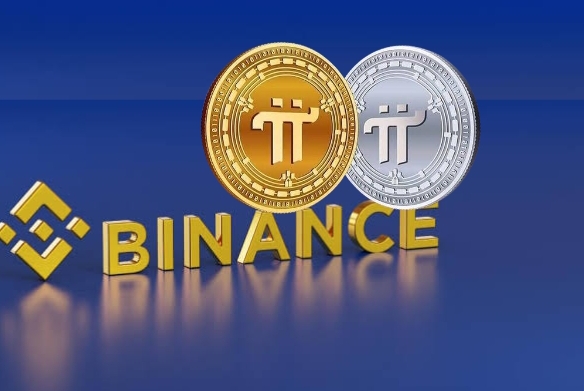The cryptocurrency community is buzzing with talk of Binance’s native token, BNB, as a growing number of traders exhibit bearish sentiment towards the embattled digital asset trading platform. Market indicators are highlighting the increasing pessimism surrounding BNB, with the funding rate for Binance’s token dropping sharply in the perpetual swap market. As traders willing to bet on a price decline pay fees to keep their bearish positions open, the rationale behind this drop in BNB warrants a closer examination.
Binance in the Spotlight
Binance, once considered a juggernaut in the cryptocurrency exchange space, has faced a tumultuous period of regulatory scrutiny and turbulence. With regulatory authorities in various countries expressing concerns about the platform’s compliance and operations, uncertainty looms over the future of Binance.
The exchange’s troubles have sent ripples across the crypto industry, casting doubts on the safety of user funds and impacting investor confidence. As Binance’s native token, BNB, is closely tied to the exchange’s success and reputation, traders are keeping a watchful eye on its performance.
Crypto Derivatives Show Growing Pessimism Around Binance’s Token
The Perpetual Swap Market Signals Bearishness
The perpetual swap market, a type of futures contract that does not expire, has become a battleground for traders expressing their sentiments towards BNB. Data from Coinglass reveals that the open interest-weighted funding rate for BNB turned negative over the weekend, indicating a surge in traders who anticipate a price decline.
In this market, traders take on long or short positions based on their predictions for the asset’s future price movements. When the funding rate turns negative, it signifies that bearish speculators are eager to pay those counting on gains to maintain their short positions. This development suggests that more traders are leaning towards shorting BNB, a trend that warrants a deeper exploration.
The Rationale Behind BNB’s Bearish Drop
Several factors may be contributing to the growing pessimism around BNB:
1. Regulatory Cloud: Binance’s recent regulatory challenges have shaken investor confidence. News of investigations and regulatory inquiries into the exchange’s operations have left traders uncertain about the platform’s future, leading them to be cautious about holding BNB.
2. Security Concerns: With regulatory scrutiny comes concerns about the safety of user funds. Although Binance has assured users of the security of their assets, traders may still view BNB with skepticism amidst an atmosphere of uncertainty.
3. Market Sentiment: In the fast-paced crypto market, sentiment plays a significant role. Negative news and market volatility can quickly influence traders’ perceptions, triggering cascading effects on asset prices.
4. Exchange Outflows: Reports of significant fund outflows from Binance to other platforms may indicate traders’ preference for alternative exchanges, leading to potential divestment from BNB.
5. Competitor Appeal: Binance’s regulatory challenges have provided an opportunity for other exchanges to attract disgruntled traders. As competitors gain traction, they may divert market share from Binance, impacting the demand for BNB.
As traders continue to exhibit bearish sentiment towards BNB in the perpetual swap market, the cryptocurrency community is witnessing an increasingly cautious approach to Binance’s native token. Regulatory uncertainties, security concerns, market sentiment, exchange outflows, and competitor appeal are all factors contributing to the drop in BNB.
The future of Binance and its native token remains uncertain as the exchange navigates the regulatory landscape. Investors and traders alike will closely monitor the developments surrounding BNB and Binance, seeking clarity amidst an ever-changing crypto market. As the industry adapts to new challenges, the fate of BNB will undoubtedly be influenced by a combination of regulatory outcomes, market dynamics, and investor sentiment.
Lessons for Pi Network
1. Regulatory Preparedness: The regulatory challenges faced by Binance and the subsequent impact on BNB highlight the importance of regulatory preparedness for any cryptocurrency project, including Pi Network. As Pi Network gears up for its launch, it’s crucial to proactively assess regulatory compliance requirements in various jurisdictions and build a framework to address potential issues. Being proactive in understanding and adhering to relevant regulations can enhance Pi Network’s credibility and foster trust among potential users and investors.
2. User Fund Safety: The negative sentiment surrounding BNB emphasizes the significance of prioritizing user fund safety and security. Pi Network should prioritize robust security measures and implement industry-leading practices to safeguard user assets and data. As the project aims to attract a wide user base, ensuring the safety of their funds will be crucial in building confidence in the platform.
3. Transparency and Communication: In times of uncertainty, transparent and open communication is paramount. Pi Network should proactively communicate updates, progress, and any challenges to its community. Maintaining open lines of communication can help build a sense of trust and loyalty among users and investors, even in the face of potential hurdles.
4. Strong Community Governance: The BNB dilemma demonstrates the importance of community governance in times of crisis. Building a strong and engaged community that actively participates in decision-making can provide invaluable support during challenging periods. Community feedback and involvement can help the project adapt to changing circumstances and make informed decisions for the platform’s long-term success.
5. Differentiation from Competitors: The competitive landscape in the cryptocurrency space is ever-evolving. Pi Network should carefully analyze the strengths and weaknesses of its potential competitors, including exchanges and other blockchain projects, to differentiate itself effectively. Providing unique features, user benefits, and clear value propositions can help Pi Network stand out in a crowded market.
6. Sustainable Business Model: The BNB situation highlights the importance of establishing a sustainable business model. Pi Network should focus on creating a viable and long-term revenue generation strategy that aligns with the project’s objectives. This can ensure the project’s financial stability and growth in the face of potential challenges.
7. Learning from BNB’s Experience: Pi Network can draw lessons from BNB’s experience and implement risk management measures. Understanding the factors that contributed to BNB’s bearish trend and challenges can help Pi Network proactively address potential pitfalls and vulnerabilities in its own ecosystem.
The BNB dilemma offers valuable messages for Pi Network’s upcoming launch. By prioritizing regulatory preparedness, user fund safety, transparency, community governance, differentiation, a sustainable business model, and learning from the experiences of other projects, Pi Network can position itself for success and resilience in an ever-changing crypto landscape. Being proactive in addressing these messages can help Pi Network build a strong foundation and navigate challenges effectively as it embarks on its journey to become a prominent player in the blockchain ecosystem.












